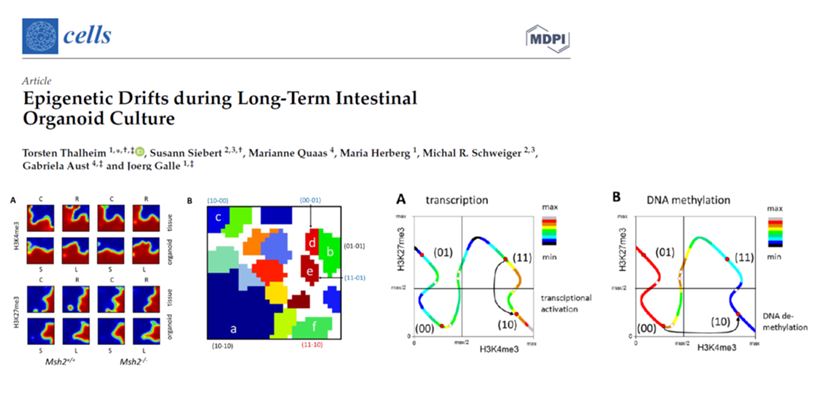EPIGENETIC DRIFTS DURING LONG-TERM INTESTINAL ORGANOID CULTURE

Organoids retain the morphological and molecular patterns of their tissue of origin, are self-organizing, relatively simple to handle and accessible to genetic engineering. Thus, they represent an optimal tool for studying the mechanisms of tissue maintenance and aging.
Long-term expansion under standard growth conditions, however, is accompanied by changes in the growth pattern and kinetics. As a potential explanation of these alterations, epigenetic drifts in organoid culture have been suggested. Here, we studied histone tri-methylation at lysine 4 (H3K4me3) and 27 (H3K27me3) and transcriptome profiles of intestinal organoids derived from mismatch repair (MMR)-deficient and control mice and cultured for 3 and 20 weeks and compared them with data on their tissue of origin.
We found that, besides the expected changes in short-term culture, the organoids showed profound changes in their epigenomes also during the long-term culture. The most prominent were epigenetic gene activation by H3K4me3 recruitment to previously unmodified genes and by H3K27me3 loss from originally bivalent genes. We showed that a long-term culture is linked to broad transcriptional changes that indicate an ongoing maturation and metabolic adaptation process. This process was disturbed in MMR-deficient mice, resulting in endoplasmic reticulum (ER) stress and Wnt activation. Our results can be explained in terms of a mathematical model assuming that epigenetic changes during a long-term culture involve DNA demethylation that ceases if the metabolic adaptation is disturbed.
click here for reading the full article https: https://www.mdpi.com/2073-4409/10/7/1718/htm
